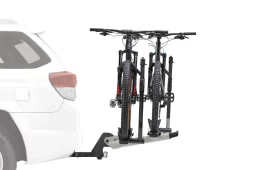The clean energy revolution may very well be centered around electric vehicles (EVs), which are currently all the rage. There are an equal number of lithium-ion batteries required to power all of those electric vehicles, and recycling those batteries is a challenging but essential issue. There is even more to recycle because household batteries are frequently constructed from materials that are very similar to those used in EV batteries.
Similar to recycling solar panels, it is expensive and challenging to separate apart the parts of a lithium-ion battery so that they can be recycled and used again. As batteries become more and more common, lithium-ion battery recycling is now possible, but not at the size or efficiency to meet its demand.
Why do lithium-ion solar and electric vehicle batteries need to be recycled?
Recovering materials and preserving the environment are the two main benefits of recycling solar and electric vehicle batteries.
Recycling batteries helps to protect and repurpose precious and necessary materials.
Cobalt, iron, and nickel are just a few of the numerous precious and practical components used in manufacturing lithium-ion batteries. Reclaiming and reusing minerals is beneficial whenever possible because it is expensive and environmentally harmful to mine and process these materials, especially when it comes to metals like cobalt and nickel. Cobalt and other rare metals will only get more expensive to extract as they become more difficult to mine.
Battery recycling benefits the environment.
Similar to recycling plastics, recycling batteries benefits the environment in addition to the financial rewards of doing so. Those metals we mentioned above are dangerous and, if simply thrown in a landfill, can harm the ecosystem and our water supply.
Additionally, the act of mining itself is a highly harmful activity for the ecosystem. The more we can recycle the various minerals used in solar batteries, the less we’ll need to continue mining them, which has multiple negative repercussions.
Recycling of Lithium-ion Batteries
Large lead-acid batteries are still commonly used in cars and stationary storage systems all over the world, and the adoption of lithium-ion batteries has just recently begun to pick up speed. Lithium-ion technologies are currently the fastest-growing category of energy storage choices, and many analysts anticipate that this trend will last for many years. The rapidly expanding market for electric vehicles is primarily responsible for this acceleration.
Modern lead-acid batteries, such as those seen in gas-powered vehicles, may be recycled very readily. Since their inception, scientists have created and improved methods to recover the materials they contain. Additionally, a lead-acid battery’s chemical composition makes recycling a breeze because the battery’s parts are simple to separate and maintain their value. All of this results in the recycling of more than 90% of lead-acid batteries in use today.
The development of lithium-ion batteries isn’t quite as advanced as that of their lead-acid predecessors, and the recycling process is now much more difficult. The majority of lithium-ion batteries recycled today undergo a procedure called ‘shredding,’ in which the battery is broken up into incredibly tiny fragments. This so-called ‘black mass’ is crushed and then treated to remove important metals like cobalt and nickel. Although it’s a start, the value of the recovered components is decreased by the existing procedure, which is relatively energy-intensive.
What makes recycling lithium-ion batteries challenging?
Due to their ability to be recharged, lithium-ion batteries have gained popularity in the consumer electronics sector and are now expanding into the EV market as well as being used as storage for wind and solar energy projects. Utilizing and integrating technology to make them recyclable is difficult in order to complete the loop. First, because of their chemical makeup, lithium-ion batteries are categorized as hazardous waste, which makes recycling them challenging. Economically speaking, the incentive to invest in a recycling process is low because the resale value of lithium-ion battery components is low in comparison to the costs involved.
Wrapping Up
Li-ion battery recycling requires specific equipment and methods. Only devoted and well-trained recycling personnel are therefore permitted to handle them. For the purpose of recycling lithium-ion batteries and returning them to the supply chain, there are numerous battery recycling companies in India are developed. The key driver behind this project is India’s adoption of electric automobiles.
BatX Energies is one such business that recycles batteries. This business adheres to the circular economy, in which old products are recycled and reintegrated into the supply chain rather than being disposed of in landfills. Similar to this, the business gathers used lithium batteries, extracts the rare-earth material from them, and then sends the batteries back to the battery makers. You can go to their website to learn more.









